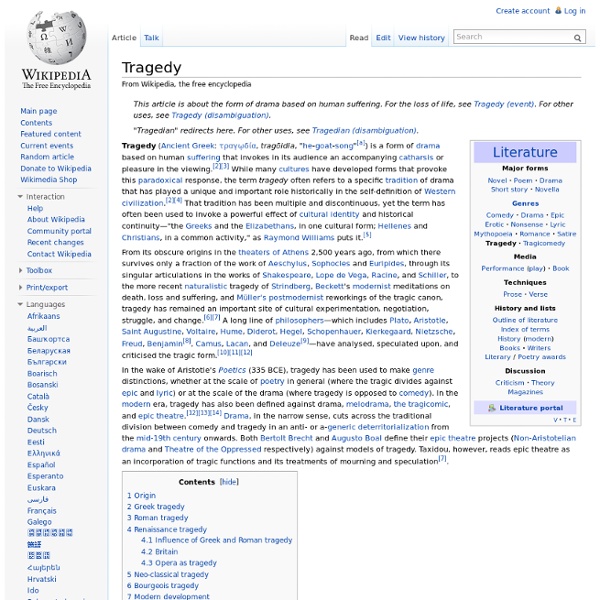



Macbeth Stop us if you've heard this one before: a man hears an exciting prophecy about his future and decides to take fate into his own hand by killing his king. Things go rapidly downhill. Sure, it's possible that you were just tra-la-la-ing through the Internet and randomly stumbled over this guide, but we're guessing that you already know Macbeth's basic plot. After all, it is one of the most famous works of English literature, and it's even loosely based on some real-life 11th century events found in Holinshed's Chronicles. So let's tell you something you might not know: when it was first performed by Shakespeare's company around 1606, Macbeth was the latest in ripped-from-the-headlines, up-to-the-minute political events. (1) It was written in 1605 or 1606, right after James I, the first Stuart king, took up the crown of England in 1603. (2) Witchcraft was a hot topic at the end of the 16th and beginning of the 17th century. Probably not.
Shakespeare: the tragic in Antony and Cleopatra Antony and Cleopatra seems to have a special place in Shakespeare's works because it is at a crossroad between two types of play. It clearly belongs to what are generally called the 'Roman' plays, along with Coriolanus and Julius Caesar. But it is also considered a tragedy. The importance of history in the play cannot be denied, especially where it is compared to Shakespeare's 'great' tragedies such as Hamlet and Romeo and Juliet. But one might wonder what is specifically tragic in Antony and Cleopatra, and what can be said about the tragic in a play which is so different from the other tragedies. Taking into account a wide corpus of plays, from Antiquity as well as from France and England, we can detect several constant features that can define the tragic. The heroes of Antony and Cleopatra have high rank and ability because they are above the level of common people. A tragic hero is usually outstanding, but not perfect. This view is exemplified in the character of Antony.
What are three internal conflicts that Macbeth faces in Macbeth, and what quotes symbolize the conflicts? - Macbeth - Questions & Answers In Act 5.3 of Shakespeare's Macbeth, internal conflicts are revealed in the title character. The scene opens with Macbeth appearing confident that he can withstand any attack by his enemies. He is holding on to his faith in the predictions made by the witches. Yet, within only seconds he is despairing, saying he "has lived long enough," and that he should not expect those things that come with old age, such as "honor, love, obedience." Emotionally, Macbeth holds on to the predictions that suggest he is indestructible. Later, in Act 5.5, Macbeth will despair again when he is told that his wife has died. Yet, again, oppositions appear in Macbeth.
::: Aristotle's Definition of Tragedy ::: “A tragedy, then, is the imitation of an action that is serious and also, as having magnitude, complete in itself; in language with pleasurable accessories, each kind brought in separately in the parts of the work; in a dramatic, not in a narrative form; with incidents arousing pity and fear, wherewith to accomplish its catharsis of such emotions.” (Imgram Bywater: 35). “Tragedy, then, is an imitation of an action of high importance, complete and of some amplitude; in language enhanced by distinct and varying beauties; acted not narrated; by means of pity and fear effectuating its purgation of these emotions.” Excepting the famous concepts of “unit of time” (or length of tragedy) and “character’s flaw” (or hamartia), probably there's not other concept or part in Aristotle’s Poetics as puzzling and celebrated as the famous definition of tragedy. Imitation. What is Action? Catharsis. Notas [1] Short after Prof. [3] Actually we’re jumping “pity and fear”. Bywater, Imgram. Cooper, Lane.